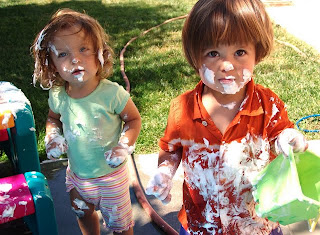Adjectives
See also Study page: Gradable and limit adjectives and Study page: Order of adjectives.
The comparative form of adjectives is used to show that someone or something has more of a particular quality than someone or something else. To make the regular comparative form, you either add '-er' to the end of the adjective, or use the word 'more' before it.
The superlative form of adjectives is used to show that someone or something has more of a particular quality than anyone or anything else. To make the regular superlative form, you either add '-est' to the end of the adjective, or use the word 'most' before it.
One-syllable adjectives usually form their comparative and superlative with '-er' and '-est'
small, smaller, smallest
Two-syllable adjectives can all form their comparative and superlative with 'more' and 'most'.
complex, more complex, most complex
Some two-syllable adjectives can use '-er' and '-est' too. The most common of these are:
adjectives ending in '-y' and '-ow'
happy, noisy, shallow
adjectives ending in '-le'
able, noble, simple
some other common two-syllable adjectives
common, cruel, handsome, pleasant, polite, quiet, solid, wicked
Three-syllable adjectives usually form their comparative and superlative with 'more' and 'most'
beautiful, more beautiful, most beautiful
When you are using the '-er', '-est' forms, if the adjective ends in '-e', take away the '-e' before adding the ending
pale, paler, palest
If the adjective ends in '-y', change this to '-i' before adding the ending
happy, happier, happiest
The comparative form of adjectives is used to show that someone or something has more of a particular quality than someone or something else. To make the regular comparative form, you either add '-er' to the end of the adjective, or use the word 'more' before it.
The superlative form of adjectives is used to show that someone or something has more of a particular quality than anyone or anything else. To make the regular superlative form, you either add '-est' to the end of the adjective, or use the word 'most' before it.
One-syllable adjectives usually form their comparative and superlative with '-er' and '-est'
small, smaller, smallest
Two-syllable adjectives can all form their comparative and superlative with 'more' and 'most'.
complex, more complex, most complex
Some two-syllable adjectives can use '-er' and '-est' too. The most common of these are:
adjectives ending in '-y' and '-ow'
happy, noisy, shallow
adjectives ending in '-le'
able, noble, simple
some other common two-syllable adjectives
common, cruel, handsome, pleasant, polite, quiet, solid, wicked
Three-syllable adjectives usually form their comparative and superlative with 'more' and 'most'
beautiful, more beautiful, most beautiful
When you are using the '-er', '-est' forms, if the adjective ends in '-e', take away the '-e' before adding the ending
pale, paler, palest
If the adjective ends in '-y', change this to '-i' before adding the ending
happy, happier, happiest



Comments
Post a Comment